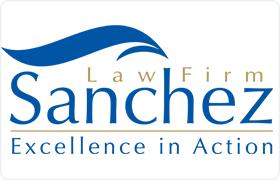Richmond Real Estate Lawyer, Texas
Sponsored Law Firm
-
 x
x

Click For More Info:
-
Sanchez Law Firm
150 W. Parker Rd. 3rd Floor Houston, TX 77076» view mapReal Estate Excellence In Action
We advocate for our clients in and out of court. When you and the system meet head on, you need an attorney who is experienced, credible, and active.
800-785-3351
M. Elizabeth Duff Drozd
Divorce & Family Law, Business, Real Estate, Estate
Status: In Good Standing Licensed: 34 Years
Arif Lawji
Real Estate, Construction, Business Organization, Landlord-Tenant, Real Estate Other
Status: In Good Standing Licensed: 28 Years
Matthew Fraser Scholes
Commercial Real Estate, Litigation, Family Law, Credit & Debt
Status: In Good Standing Licensed: 17 Years
Dale Vaughn Gibson
Commercial Real Estate, Real Estate Other, Estate, Credit & Debt
Status: In Good Standing Licensed: 22 Years
Leland M. Irwin
Real Estate, Estate, Personal Injury, Medical Malpractice
Status: In Good Standing Licensed: 30 Years
Mary Elizabeth Duff
Commercial Real Estate, Clean Air Practice, Family Law, Business & Trade
Status: In Good Standing
John H. Thomisee
Construction, Litigation, Insurance, Personal Injury
Status: In Good Standing Licensed: 35 Years
Robert Daniel Franks
Construction, Litigation, Family Law, Credit & Debt
Status: In Good Standing Licensed: 20 Years
Stephen Clark Rogers
Commercial Real Estate, Energy, Gift Taxation, Commercial Bankruptcy
Status: In Good Standing Licensed: 21 Years
Bryan Neil Linch
Estate Planning, International Tax, Construction, Elder Law, Business
Status: In Good Standing Licensed: 31 Years
 Benjamin Sanchez Houston, TX
Benjamin Sanchez Houston, TX Practice AreasExpertise
Practice AreasExpertise
